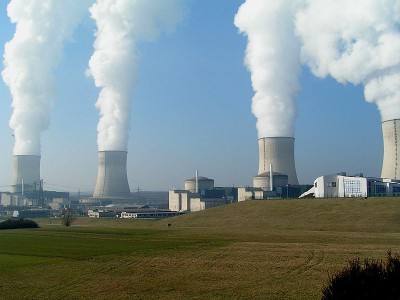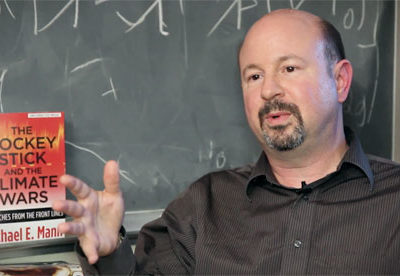Litigation
2014: Happy Endings & Promising Starts
In most ways, 2014 was a good year for environmental protection, with progress on several fronts. True, there are warning signs for 2015 — primarily the Republican sweep of the mid-terms and the Supreme Court’s puzzling decision to review toxics regulations for coal-fired power plants. And of course, there were losses as well as victories, …
Continue reading “2014: Happy Endings & Promising Starts”
CONTINUE READINGThe Disturbing Legal Influence of the Fossil Fuel Industry
Coal and oil have found legal spokesmen in state houses and law schools.
The NY Times has a disturbing story this morning about the secret alliance between some state attorney generals and the fossil fuel industry. Perhaps the most shocking is an example in which the Attorney General of Oklahoma had a draft by a coal company retyped on letterhead and submitted as his own opinion. The industry …
Continue reading “The Disturbing Legal Influence of the Fossil Fuel Industry”
CONTINUE READINGUsing Textualism Against Itself
Industry has come up with a Scalia-like argument to fight the proposed climate regulations for existing power plants. The problem arises because Congress passed two different versions of section 111(d) without realizing it. The Senate version clearly gives EPA the authority to regulate CO2 under this provision. But opponents of regulation argue that the House version …
Continue reading “Using Textualism Against Itself”
CONTINUE READINGA Blow to Public Interest Litigation
A Texas judge’s award of attorney fees is a threat to all public interest groups, liberal or conservative.
A couple of weeks ago, a federal district judge in Texas awarded over $6 million in attorneys’ fees against the Sierra Club. Sierra Club had survived motions to dismiss and for summary judgment, only to lose at trial. The court awarded fees on the ground that the suit was frivolous. The combination of rulings — denying summary …
Continue reading “A Blow to Public Interest Litigation”
CONTINUE READINGUARG Strikes Back
Will UARG Persuade the Supreme Court to Overturn New Air Quality Standards?
“UARG” sounds like the name of a monster in a children’s book or maybe some kind of strangled exclamation. But it actually stands for Utility Air Regulatory Group, which represents utility companies in litigation. UARG did well in two important Supreme Court cases last year, winning part of the case it brought against EPA climate change …
Continue reading “UARG Strikes Back”
CONTINUE READINGMisleading Attacks On California’s New Transportation Analysis Under CEQA
Big Law Firm Holland & Knight Misrepresents New State Guidelines
Last year, the California legislature passed badly needed reform to change how agencies evaluate a project’s transportation impacts under the California Environmental Quality Act (CEQA). The Governor’s Office of Planning and Research (OPR) was tasked with coming up with new guidelines for how this analysis should be done going forward. As I blogged about, the …
Continue reading “Misleading Attacks On California’s New Transportation Analysis Under CEQA”
CONTINUE READINGWhy Michael Mann’s Defamation Suit Against Climate Denialists Is the Right Move
With the facts on his side, there’s no reason to hide
Dr. Michael Mann, one of the country’s leading climate scientists, has been harassed, threatened, and berated for his views that human actions are contributing to global climate change. But not just from anonymous commenters on websites — from leading publications like the National Review Online. After being compared to Jerry Sandusky and having the credibility …
Continue reading “Why Michael Mann’s Defamation Suit Against Climate Denialists Is the Right Move”
CONTINUE READINGClosely Confined Chickens, Interstate Conflict & the Dormant Commerce Clause
Is Proposition 2, California’s Pioneering Animal Welfare Law, Unconstitutional?
Last week witnessed a most interesting constitutional showdown between sovereign states in U.S. District Court in Sacramento. At issue is animal welfare legislation California has enacted both at the ballot box and through its elected representatives. The enemy combatants are a coalition of midwestern states led by Missouri, aligned against the State of California, with …
Continue reading “Closely Confined Chickens, Interstate Conflict & the Dormant Commerce Clause”
CONTINUE READINGFDA Discretion and Animal Antibiotics
FDA has stalled for 30 years in regulating antibiotics in animal feed. A court says that’s O.K.
The FDA seems to be convinced that current use of antibiotics in animal feed is a threat to human health. But the Second Circuit ruled recently in NRDC v. FDA that EPA has no duty to consider banning their use. That may seem ridiculous, but actually it’s a very close case legally. The court’s discussion of Massachusetts …
Continue reading “FDA Discretion and Animal Antibiotics”
CONTINUE READINGBig Court Wins For High Speed Rail
More litigation to come, along with funding challenges, but construction can finally begin
The California High Speed Rail Authority secured a big legal victory in the state court of appeals yesterday, which overturned twin decisions by a trial court judge that threatened to derail (no pun intended) the entire program. Coupled with another appellate court win a week ago upholding the program-level environmental review on the Pacheco Pass …
Continue reading “Big Court Wins For High Speed Rail”
CONTINUE READING











